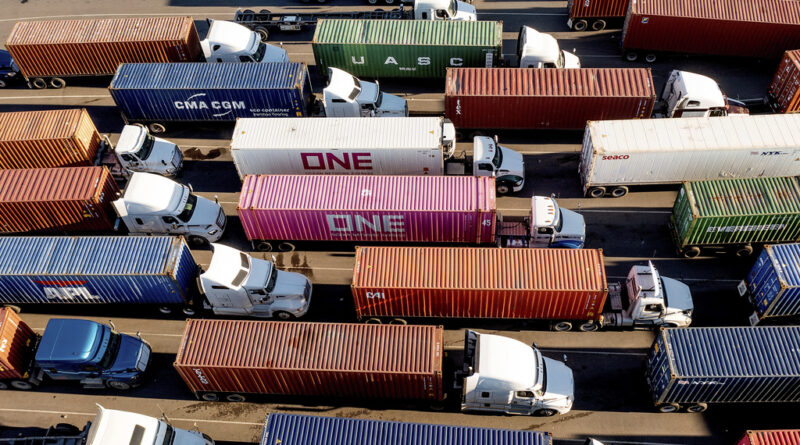With billions at stake, Colorado joins multi-state lawsuit to block Trump tariffs
Colorado joined a multistate lawsuit Wednesday against the Trump administration to challenge import tariffs that were rolled out by executive order and not by an act of Congress.
The lawsuit, led by attorneys general from the states of Oregon and Arizona, asks the court to rule the tariffs illegal and block their implementation and enforcement because the tariffs violate Article I of the U.S. Constitution, which grants “only Congress, not the President, the ‘power to lay and collect taxes, duties, imposts and excises,’” said the suit filed in the U.S. Court of International Trade.
“Under the Constitution, only Congress has the power to tax and impose tariffs and there is no ‘emergency’ that justifies the Trump tariffs,” Colorado Attorney General Phil Weiser said in a news release. “We are challenging these tariffs in court because they are illegal and, as one study concluded, they will ‘increase inflation, result in nearly 800,000 lost jobs, and shrink the American economy by $180 billion a year.’”
Connecticut, Delaware, Illinois, Maine, Minnesota, Nevada, New Mexico, New York and Vermont also joined the suit. The state of California filed its own lawsuit in a U.S. District Court last week. All but two of the states have governors who are Democrats.
Colorado exported $10.5 billion and imported $17 billion in goods last year, according to the Office of the U.S. Trade Representative.
Currently, there is a 25% tariff on imports from Mexico and Canada, though some goods are exempt because of the U.S.-Mexico-Canada Agreement. Another 57 U.S. trade partners were socked with an additional 10% tax this month, which was lower than Trump’s initial reciprocal tariffs that were since paused on a number of countries that agreed to consider new trade deals.
China, however, retaliated against the retaliatory tariffs, matching the new U.S. tax, leaving U.S. businesses paying not just the price of the item imported or exported, but an additional 145% more in the tit-for-tat trade war with China. Some items were later excluded, including smartphones.
The high tax caused chaos in the stock market but also hit many local businesses, farmers, the outdoor industry and Coloradans who buy imported food or groceries or other imports.
On Wednesday, the Trump administration was toying with lowering China tariffs to somewhere between 50% and 65%, according to a Wall Street Journal report. A day earlier, Trump said in a news conference, “145% is very high and it won’t be that high. … It will come down substantially, but it won’t be at zero.”

